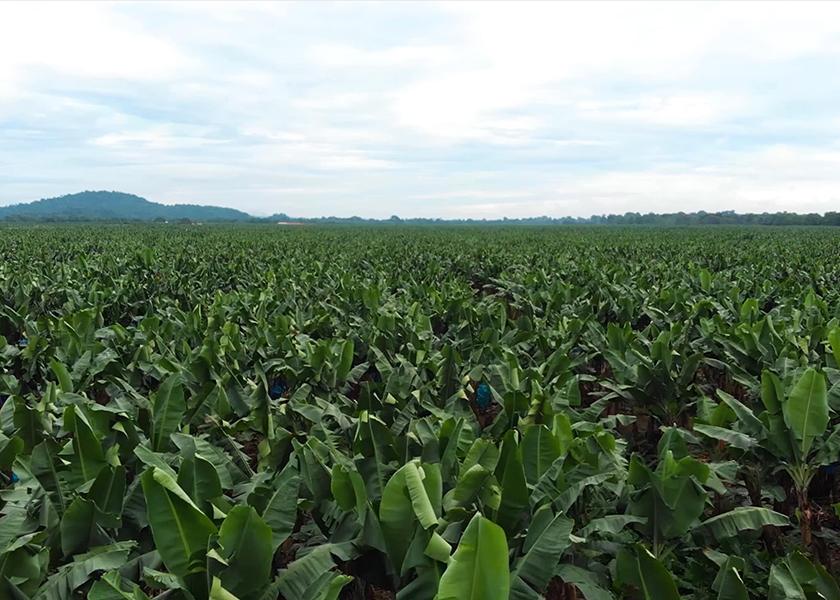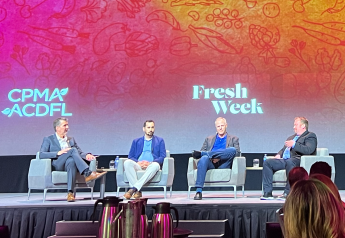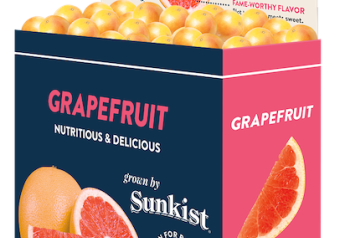Countdown to zero: How one grower brings carbon-neutral bananas to market

In the search for sustainable production, tropical fruit grower Kapi Kapi Growers set its sights on an audacious goal, not yet achieved by a competitor: carbon-neutral bananas.
As exciting as this aspiration is, how exactly does one measure and quantify carbon neutrality in fresh fruit?
As Kapi Kapi Growers sought answers, the International Fresh Produce Association collaborated with the grower, outlining how it charted its carbon neutral course in a recently published sustainability case study, “Becoming Carbon Neutral Through Beneficial Environmental Practices."
“We want to thank IFPA’s sustainability group for supporting us in conducting this case study,” Sofia Acon said in a news release. Acon is president of Kapi Kapi Growers, which is headquartered in the U.S. but was founded in Costa Rica. “As many are well aware, carbon neutrality is a commitment that takes hard work and dedication. We take pride in being among the pioneering banana companies to reach this goal, while also expanding our partnerships and availability of our products in North America and Europe.”
Charting a course to carbon neutral
Having already achieved a laundry list of sustainability certifications — Rainforest Alliance, Sustainably Grown Certified and Ethical Trade Initiative — Kapi Kapi Growers sought to raise the bar once more through recognition by Costa Rica’s National Carbon Neutrality Program, a certification that allowed it to identify as a carbon-neutral company.
While the grower supplies bananas and pineapples to retailers and fruit brands in over 25 countries, it wanted to achieve carbon neutrality in 100% of its banana business. Kapi Kapi Growers achieved that goal in 2022 and is now working to expand its carbon neutral certification to include pineapples, according to the case study.
“We want to work toward change in the direction of even higher levels of sustainable production. This certification alone took [five] years of planning and long-term conviction. For us sustainability is at the core of our bigger purpose as we grow,” Acon said in the case study.
Baselining and mapping a course to carbon neutral
The first step in tackling its goal of carbon neutrality was to address carbon sources.
Excess amounts of carbon released into the atmosphere during operations is not only a problem in the produce industry, but in all industries throughout the world, the case study noted. Carbon neutrality takes not only thoughtful growing and business processes, but it also takes careful planning and analysis.
According to the study, common major carbon contributors for growers include:
-
Nitrogen-based fertilizers.
-
Improper soil-management practices.
-
Machinery and transportation fuels.
-
Deforestation.
After identifying and assessing the main carbon contributors in an operation, the goal is to track and counterbalance these sources of carbon emissions, according to the case study.
Managing emissions
One you know what you’re working with, next comes the balancing act. Carbon neutrality is achieved through compensating for known carbon emissions by way of environmentally beneficial countermeasures. This tracking is often described as carbon accounting.
According to the case study, the certification process for the banana division began in 2017 and covered 9,000 hectares.
“Main sources of carbon for the company include fertilizers, machinery and transportation. All sources of carbon emissions were identified, quantified and accounted for,” the case study said. “Once identified, the company enacted a plan that included establishing a carbon neutrality management system and implementing reduction measures, which included solar panels installation.”
Related news: How some growers are cultivating sustainability at the apple orchard
Today, Kapi Kapi Growers' banana-growing operations is powered primarily by solar energy, with over 9,000 solar panels covering all operations, Acon said in the release.
Costa Rica’s National Carbon Neutrality Program, administered by the Climate Change Department of the Ministry of Environment and Energy, issued a carbon-neutral certification that assures the reduction and offsetting of all carbon emissions generated by Kapi Kapi’s farming operations have been validated.
Benefits of sustainable production
In addition to sharing this industry-leading sustainable agriculture story with consumers, Kapi Kapi Growers’ carbon neutral journey has resulted in cost savings because of operational changes made to achieve certification, according to the release.
As a result of the carbon neutrality initiative, Kapi Kapi Growers said it has saved approximately $400,000 in energy costs as of 2022. Over the next 10 years, the company is estimated to have reached $4 million in energy savings, said the case study.
“We started on a journey that has been integral to the DNA at Kapi Kapi,” Acon said in the release. “As our efforts towards sustainability continue to grow, we hope that we can inspire and support others to pursue a similar path.”
The case study may be accessed on the IFPA’s sustainability site.







